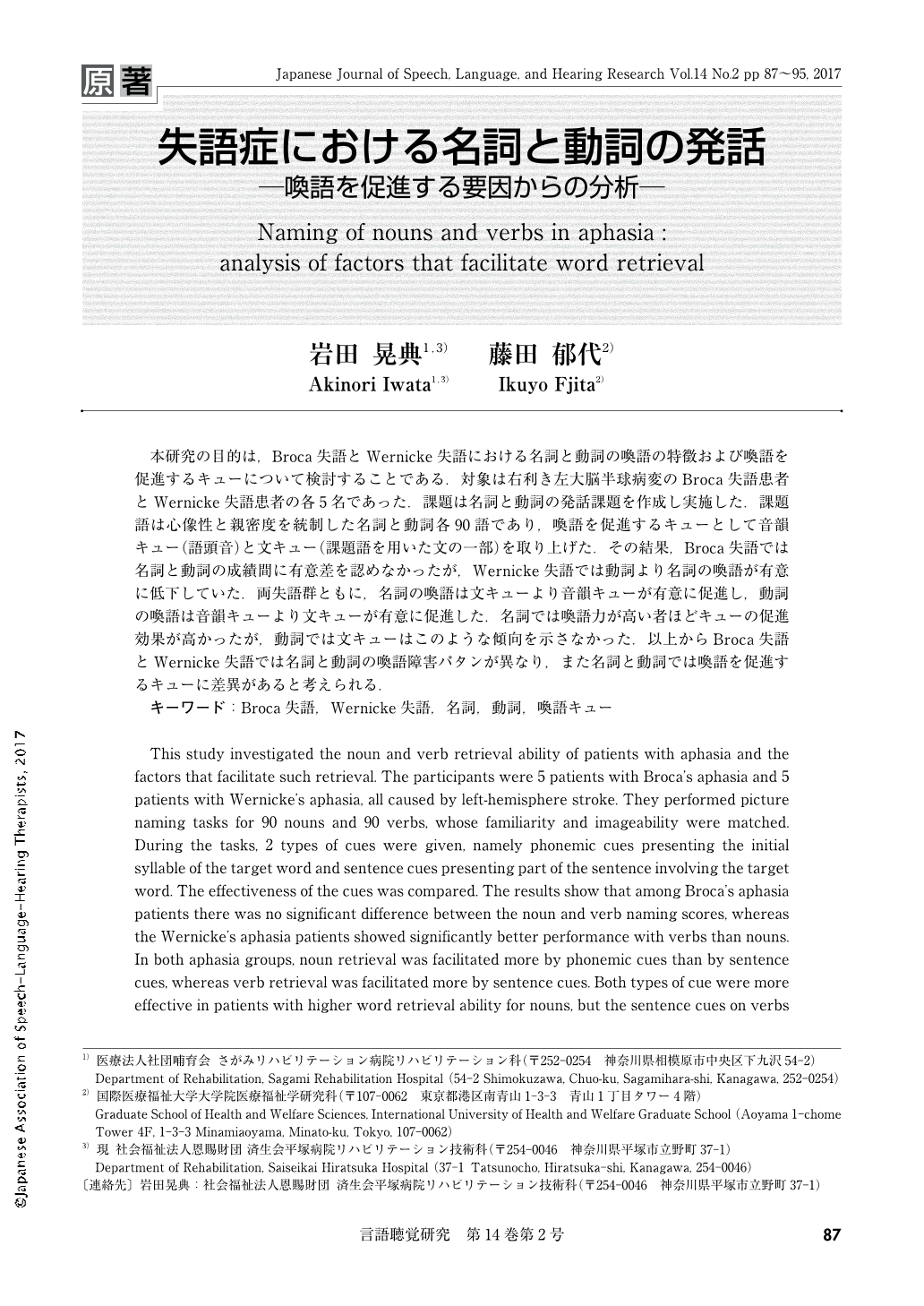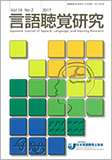Japanese
English
- 有料閲覧
- Abstract 文献概要
- 1ページ目 Look Inside
- 参考文献 Reference
本研究の目的は,Broca失語とWernicke失語における名詞と動詞の喚語の特徴および喚語を促進するキューについて検討することである.対象は右利き左大脳半球病変のBroca失語患者とWernicke失語患者の各5名であった.課題は名詞と動詞の発話課題を作成し実施した.課題語は心像性と親密度を統制した名詞と動詞各90語であり,喚語を促進するキューとして音韻キュー(語頭音)と文キュー(課題語を用いた文の一部)を取り上げた.その結果,Broca失語では名詞と動詞の成績間に有意差を認めなかったが,Wernicke失語では動詞より名詞の喚語が有意に低下していた.両失語群ともに,名詞の喚語は文キューより音韻キューが有意に促進し,動詞の喚語は音韻キューより文キューが有意に促進した.名詞では喚語力が高い者ほどキューの促進効果が高かったが,動詞では文キューはこのような傾向を示さなかった.以上からBroca失語とWernicke失語では名詞と動詞の喚語障害パタンが異なり,また名詞と動詞では喚語を促進するキューに差異があると考えられる.
This study investigated the noun and verb retrieval ability of patients with aphasia and the factors that facilitate such retrieval. The participants were 5 patients with Broca's aphasia and 5 patients with Wernicke's aphasia, all caused by left-hemisphere stroke. They performed picture naming tasks for 90 nouns and 90 verbs, whose familiarity and imageability were matched. During the tasks, 2 types of cues were given, namely phonemic cues presenting the initial syllable of the target word and sentence cues presenting part of the sentence involving the target word. The effectiveness of the cues was compared. The results show that among Broca's aphasia patients there was no significant difference between the noun and verb naming scores, whereas the Wernicke's aphasia patients showed significantly better performance with verbs than nouns. In both aphasia groups, noun retrieval was facilitated more by phonemic cues than by sentence cues, whereas verb retrieval was facilitated more by sentence cues. Both types of cue were more effective in patients with higher word retrieval ability for nouns, but the sentence cues on verbs were not more effective in patients with higher word retrieval ability. These results suggested that the patterns of noun and verb naming deficits were different between the 2 types of aphasia and that the cues to facilitate verb and noun retrieval are different.

Copyright © 2017, Japanese Association of Speech-Language-Hearing Therapists. All rights reserved.


